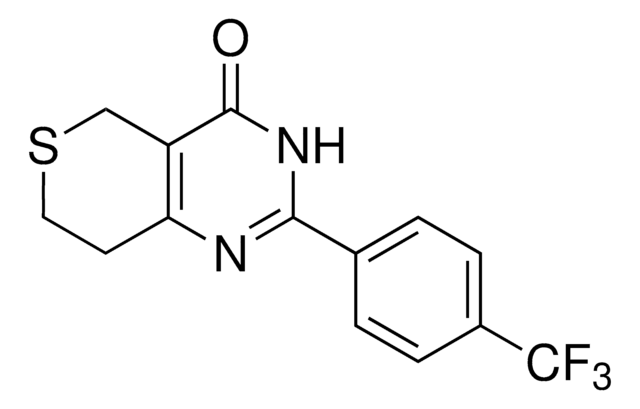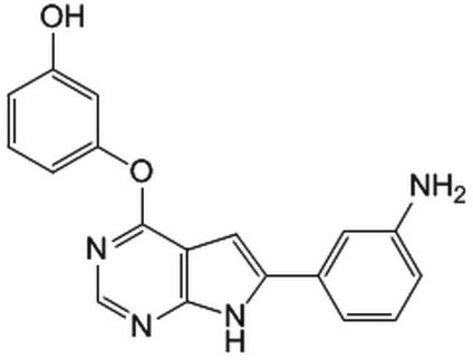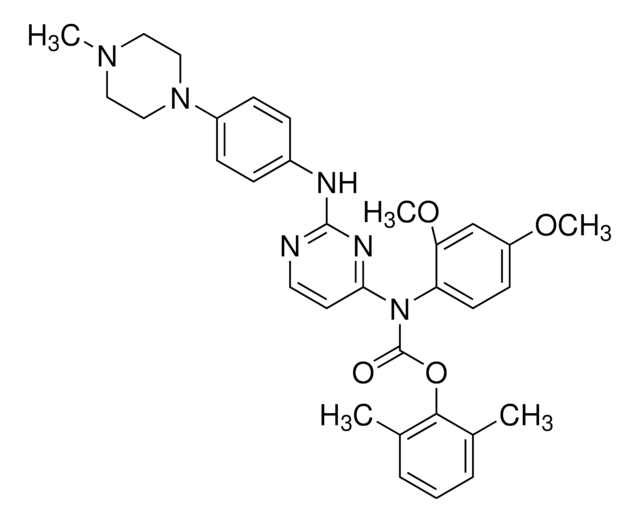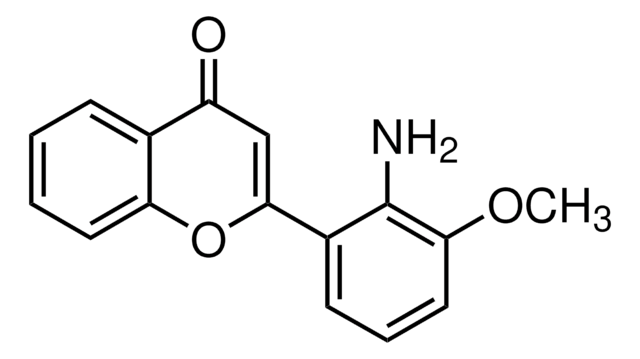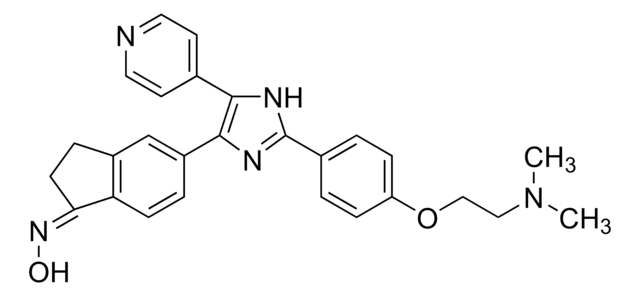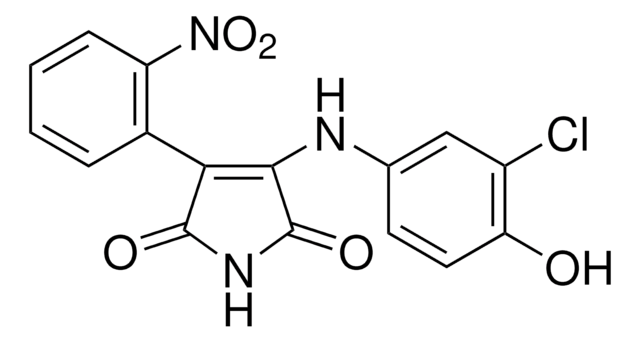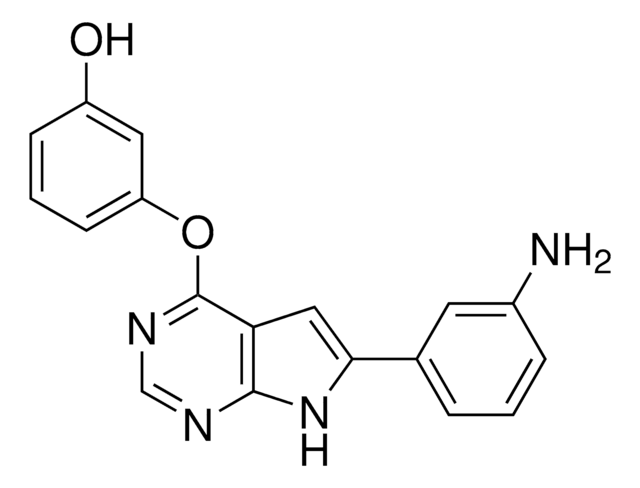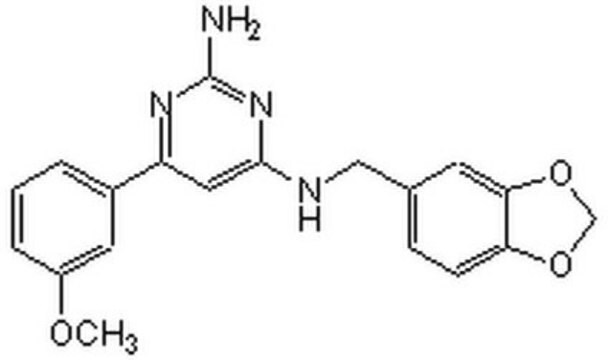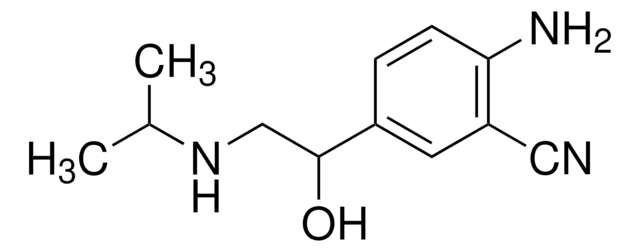S3442
SB 216763
>98% (HPLC)
Synonym(s):
3-(2,4-Dichlorophenyl)-4-(1-methyl-1H-indol-3-yl)-1H-pyrrole-2,5-dione
About This Item
Recommended Products
Quality Level
Assay
>98% (HPLC)
color
orange
solubility
DMSO: soluble 20 mg/mL
H2O: insoluble
originator
GlaxoSmithKline
storage temp.
−20°C
SMILES string
Cn1cc(C2=C(C(=O)NC2=O)c3ccc(Cl)cc3Cl)c4ccccc14
InChI
1S/C19H12Cl2N2O2/c1-23-9-13(11-4-2-3-5-15(11)23)17-16(18(24)22-19(17)25)12-7-6-10(20)8-14(12)21/h2-9H,1H3,(H,22,24,25)
InChI key
JCSGFHVFHSKIJH-UHFFFAOYSA-N
Gene Information
human ... GSK3A(2931) , GSK3B(2932)
Application
Biochem/physiol Actions
Features and Benefits
Legal Information
Storage Class Code
11 - Combustible Solids
WGK
WGK 3
Flash Point(F)
Not applicable
Flash Point(C)
Not applicable
Personal Protective Equipment
Choose from one of the most recent versions:
Already Own This Product?
Find documentation for the products that you have recently purchased in the Document Library.
Customers Also Viewed
Our team of scientists has experience in all areas of research including Life Science, Material Science, Chemical Synthesis, Chromatography, Analytical and many others.
Contact Technical Service